Economic systems are never merely mechanical arrangements of exchange and production; they are theological structures that embody and activate specific archetypal patterns in the collective psyche. Each economic theory and practice constellates around archetypal cores that shape not only material relations but the very structure of consciousness within that system. When we examine economics through the lens of archetypal psychology, we discover that what presents itself as rational economic science is actually a form of unconscious theology, with different economic systems serving different gods. The Cambridge Journal of Economics occasionally publishes heterodox perspectives that touch on these deeper currents without fully recognizing economics as applied archetypal psychology.
Neoliberalism fundamentally embodies Hermetic consciousness, that mercurial archetype of boundaries dissolution, perpetual transformation, and the alchemical conversion of all qualities into their opposites. Hermes, the god of merchants, thieves, and boundaries, presides over neoliberalism’s central doctrine that everything solid must melt into air, that all values must become exchange values, that every barrier to trade must fall. The Mont Pelerin Society’s foundational documents read like Hermetic texts when viewed through an archetypal lens, calling for the dissolution of all that impedes the free flow of capital’s quicksilver movements.
Under Hermetic neoliberalism, identity itself becomes fluid and tradeable. Workers must become “flexible,” nations must become “competitive,” all relations must submit to market liquidity. The neoliberal subject embodies Hermes’s shape-shifting nature, constantly reinventing themselves in response to market signals. The gig economy worker who shifts between multiple identities and roles throughout a single day lives within Hermetic consciousness, never solid, always in motion, forever crossing boundaries that no longer exist.
Capitalism in its industrial form constellates around Hephaestus, the smith god who transforms raw matter through fire and forge into tools and weapons. The factory is Hephaestus’s temple, the production line his ritual, the commodity his offering. The industrial capitalist embodies Hephaestian consciousness, focused on production, transformation of matter, and the creation of useful objects. The Journal of Economic History’s coverage of industrialization documents Hephaestian consciousness without recognizing its archetypal nature.
The financial capitalism that has superseded industrial capitalism represents a shift from Hephaestian to pure Hermetic consciousness, from making things to making deals, from production to transaction. This archetypal shift explains why financialization feels like a fundamental change in the nature of capitalism itself. We have moved from the forge to the marketplace, from the smith’s hammer to the merchant’s scales, from solid production to liquid speculation.
The startup ecosystem embodies Promethean consciousness, that archetypal pattern of stealing fire from the gods, of disruption and innovation that challenges existing orders. The venture capitalist as Prometheus, funding raids on the established order. The founder as Promethean hero, bringing new fire to humanity while risking destruction. The Stanford Business School’s research on entrepreneurship documents Promethean patterns without recognizing their mythological dimensions.
Yet Promethean startup culture also enacts the full myth, including the punishment phase where the eagle devours the liver nightly. The founder burnout, the unicorn implosion, the disruption that destroys the disruptor, all follow the Promethean pattern of triumphant theft followed by eternal torture. WeWork’s Adam Neumann embodied the complete Promethean cycle, from stealing fire to suffering consequences, though the market ensures new Prometheuses always arise to repeat the pattern.
Cryptocurrency constellates around Ouranian consciousness, the sky god who represents radical break from earth-bound reality, the creation of new cosmos from pure thought. Bitcoin emerged like Ouranos, from nothing, establishing new reality through pure ideation. The blockchain as Ouranian consciousness made manifest, creating truth from consensus, value from calculation, reality from code. The crypto enthusiast lives in Ouranian space, disconnected from terrestrial economics, inhabiting pure sky realms of abstract value.
The environmental movement’s economic vision embodies Gaian consciousness, the earth-mother who insists on the primacy of ecological reality over economic abstraction. Degrowth economics, circular economy, and regenerative capitalism all express Gaia’s demand that economics must submit to ecological limits. The Club of Rome’s Limits to Growth represents Gaian consciousness breaking through into economic discourse, insisting that earth’s reality trumps economy’s abstractions.
Amazon’s Jeff Bezos embodies Zeus consciousness in its most evolved form, the supreme deity of the marketplace establishing order through dominance. Amazon’s everything store as Olympus from which Zeus-Bezos surveys and controls all commerce. The Prime membership as entry into Zeus’s favor, receiving gifts from above with divine speed. The Federal Trade Commission’s antitrust investigations essentially challenge Zeusian monopoly without recognizing the archetypal dynamics at play.
The sharing economy initially promised Dionysian consciousness, that archetypal pattern of ecstatic communion, boundary dissolution, and collective intoxication. The early vision of Airbnb and Uber suggested Dionysian breakdown of ownership boundaries, ecstatic sharing of resources, the intoxication of access over ownership. Yet these platforms quickly transformed into Hermetic operations, extracting value from every transaction while maintaining the Dionysian facade.
Traditional banking embodies Saturnian consciousness, that archetypal pattern of time-binding, limitation, and conservative restriction. Banks as Saturnian temples where time transforms into money through interest, where credit creates chains of obligation extending into future. The banker as Saturnian priest, measuring, restricting, binding with debt. The 2008 financial crisis represented Saturnian structures attempting to operate in Hermetic mode, with predictable collapse resulting.
Labor unions constellation around Vulcan consciousness, the collective forge where workers unite their hammers in common cause. The strike as Vulcanian action, withdrawing the fire that powers production. The union hall as Vulcan’s workshop where solidarity gets forged from individual grievances. The Bureau of Labor Statistics data on union membership shows Vulcanian consciousness declining without recognizing the archetypal loss this represents.
The attention economy operates through Apollo consciousness, that solar deity of appearance, performance, and spectacular display. Social media platforms as Apollonian theaters where users perform themselves for likes and views. The influencer as Apollonian priest, cultivating appearance as reality, image as substance. Instagram particularly embodies Apollonian consciousness, the endless scroll of beautiful surfaces hiding whatever lies beneath.
Private equity embodies Plutonic consciousness, the underworld god of hidden wealth and hostile takeover. The leveraged buyout as Plutonic rape, carrying companies into underworld transformation. The private equity firm as Hades’s realm, where companies disappear from public view to be transformed or destroyed. The Private Equity Stakeholder Initiative’s research documents Plutonic destruction without recognizing its archetypal pattern.
The military-industrial complex constellates around Ares consciousness, that god of war whose economics requires eternal conflict. Defense contractors as Ares’s priests, ensuring war’s machinery never lacks funding or purpose. The defense budget as sacrifice to Ares, protecting against threats real and imagined. The Stockholm International Peace Research Institute’s data on military spending tracks Ares worship without recognizing its religious nature.
Luxury brands operate through Aphrodite consciousness, that archetypal pattern of beauty, desire, and seductive power. The luxury object as Aphrodite’s talisman, conferring beauty and desirability on its possessor. Fashion week as Aphrodite’s ritual, celebrating beauty’s power to create value from desire. The McKinsey’s State of Fashion report documents Aphroditic economics without recognizing its archetypal ground.
The non-profit sector embodies Hestian consciousness, that goddess of hearth who maintains sacred center without seeking glory or profit. The foundation as Hestian temple, quietly maintaining civilization’s sacred flames. The social worker as Hestian priestess, tending society’s hearth without recognition or adequate compensation. The chronic underfunding of non-profits reflects our culture’s devaluation of Hestian consciousness.
Silicon Valley’s obsession with disruption and innovation represents Titanic consciousness, those primordial forces that preceded Olympian order and constantly threaten to return. The tech titan as literal Titan, wielding primitive power that threatens established divine order. Facebook’s Zuckerberg, Google’s Page and Brin, as Titans whose power rivals and challenges governmental gods. The European Union’s tech regulation efforts represent Olympian attempts to chain Titanic forces.
Understanding economic systems as archetypal activations reveals why economic debates become religious wars. We are not merely discussing resource allocation but which gods should rule, which archetypal patterns should shape consciousness. The conflict between socialism and capitalism is really between Demeter and Hermes, between agricultural and mercantile consciousness. The environmental movement challenges not just pollution but the entire Hermetic dissolution of boundaries between economy and ecology.
This archetypal view suggests that economic transformation requires not just new policies but new archetypal constellations. We cannot solve Hermetic neoliberalism’s problems with more Hermetic solutions. We cannot address environmental crisis while remaining in Ouranian cryptocurrency consciousness. We need economic systems that can hold multiple archetypal patterns simultaneously, that can honor both Hermes and Demeter, both innovation and conservation, both individual brilliance and collective care.
The question becomes: which gods do we want presiding over our economic life? And can we imagine economic systems complex enough to honor multiple deities without falling into archetypal possession by any single pattern? The future may depend on our ability to create consciously polytheistic economics that recognizes and balances different archetypal forces rather than surrendering to single-deity dominance.

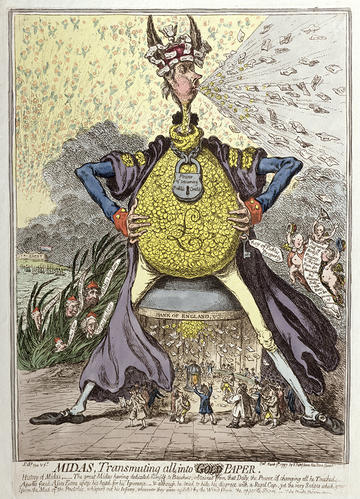



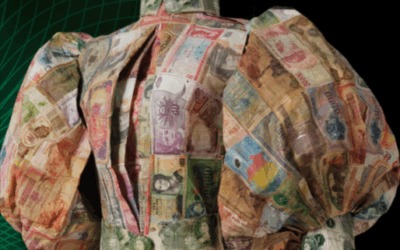

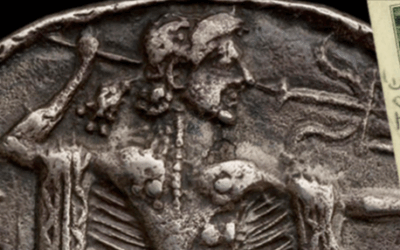



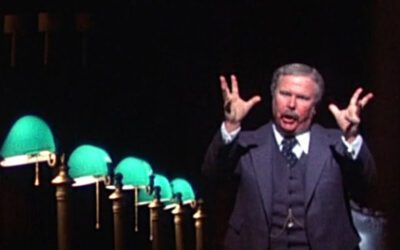



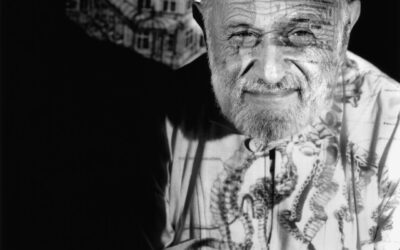

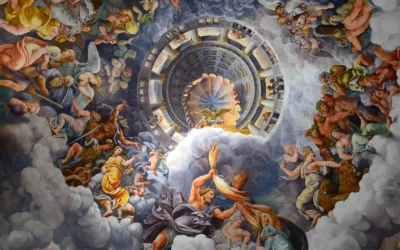
0 Comments